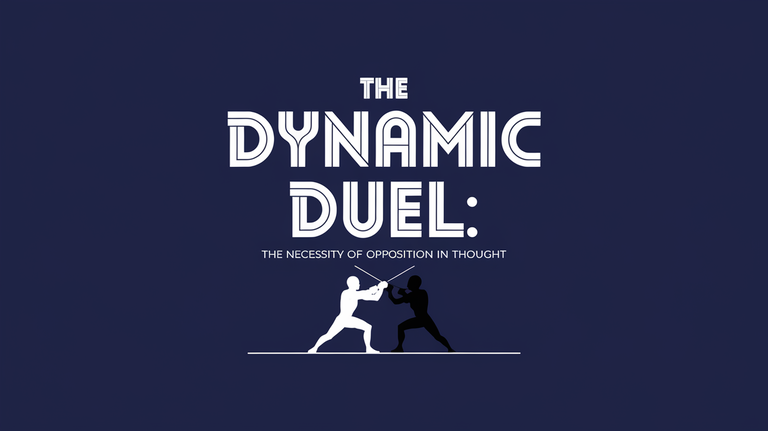Thinking, at its heart, is not a solitary pursuit but an engaging duel with opposing ideas and perspectives. The maxim, “Thinking is like a game, it does not begin unless there is an opposite team,” encapsulates this truth, underlining the vital role of opposition in stimulating and enriching the intellectual process. It draws an insightful parallel between the realms of thought and games, suggesting that just as a game requires competing sides to unfold, meaningful thought necessitates the presence of countervailing viewpoints. Let us explore this intriguing analogy further, examining the significance of opposition in fostering intellectual growth, promoting innovation, and ultimately shaping the course of human progress.
The Intellectual Battlefield: The Arena of Thought
The statement posits thinking as a dynamic contest, where ideas, arguments, and perspectives clash and compete in the intellectual arena. Like a game, it involves strategizing, anticipating moves, and responding effectively to challenges. The “opposite team” in this context represents alternative viewpoints, opposing arguments, or even our own internal doubts and reservations. Without this opposition, our thinking risks becoming a monologue, devoid of the challenges that trigger deeper analysis and self-reflection.
The Crucible of Critical Thinking
Opposition serves as a crucible for critical thinking. It compels us to scrutinize our assumptions, evaluate evidence rigorously, and question the validity of our conclusions. By confronting alternative perspectives, we are forced to engage in a dialectic process, refining our understanding and developing nuanced positions. Just as a skilled chess player anticipates the opponent’s moves, a critical thinker anticipates and addresses potential counterarguments, bolstering the strength and coherence of their own position.
The Catalyst for Innovation
The clash of ideas acts as a catalyst for innovation and creativity. When opposing viewpoints collide, they create sparks that ignite new possibilities and unexpected solutions. The history of science, technology, and art is replete with instances where the challenge posed by an opposing perspective led to groundbreaking discoveries and paradigm shifts. From the heliocentric model of Copernicus to the theory of evolution by natural selection, scientific progress has been driven by the constant interplay of conflicting ideas.
The Foundation of Progress
Opposition plays a fundamental role in societal progress. In the realm of politics, the existence of opposing parties ensures a diversity of viewpoints. It prevents the monopolization of power. In the legal system, the adversarial process guarantees a fair trial, where opposing lawyers present their cases before an impartial judge. And in academia, intellectual debates foster an environment where ideas are rigorously scrutinized and knowledge is continually refined.
Embracing the Challenge
Embracing opposition requires open-mindedness, humility, and a willingness to engage with ideas that may challenge our preconceptions. It demands intellectual curiosity and a commitment to lifelong learning. In an increasingly polarized world, where echo chambers and filter bubbles reinforce existing biases, the ability to engage constructively with opposing viewpoints is more crucial than ever before.
Conclusion
The notion that “Thinking is like a game, it does not begin unless there is an opposite team” serves as a powerful reminder of the dynamic nature of thought. It underscores the vital role of opposition in stimulating intellectual growth, fostering innovation, and shaping the course of human progress. By embracing the challenges posed by opposing perspectives, we embark on a journey of continuous learning and self-discovery. This journey, marked by vigorous debates, open dialogue, and a relentless pursuit of truth. It is essential not only for individual development but also for the advancement of society as a whole.







